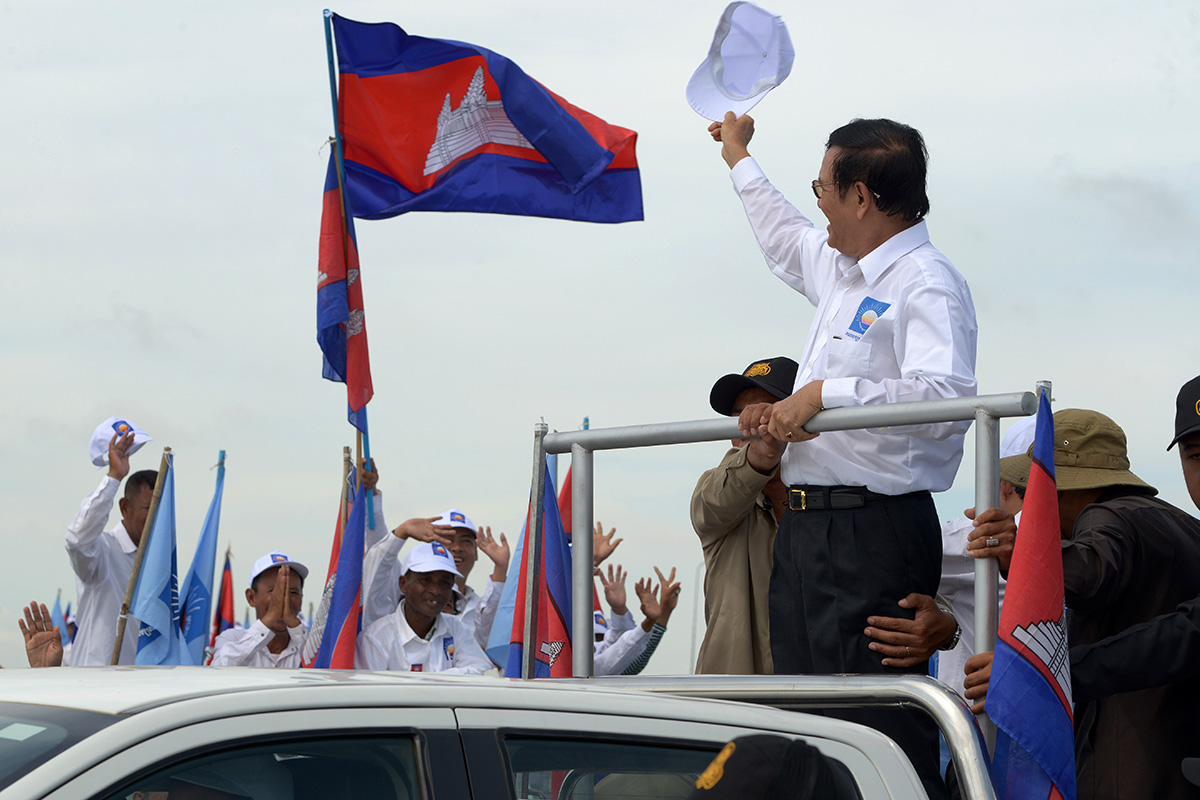Cambodia’s leader of the opposition, Kem Sokha was not granted bail, three weeks after police descended to his home and carted him away to a prison at the Cambodia-Vietnam border.
"The court decided to uphold the provisional detention warrant (of Kem Sokha)," Touch Tharith, a spokesman for the Court of Appeals, was quoted by the AFP (Agence France-Presse).
However, the opposition politician and leader of the CNRP (Cambodia National Rescue Party) was not present at the court hearing amidst “security concerns” about transporting the opposition icon from the prison to the nation’s capital in Phnom Penh.
His lawyers proceeded to then boycott the hearing and walked out of the courtroom when the court decided to continue with proceedings.
In response to protests against this decision, the Court of Appeals issued a statement saying it was needless to bring the suspect to the courtroom because it wasn’t an evidentiary hearing.
On Tuesday, opposition parliamentarians and supporters rallied outside to call for the release of their stalwart leader after being barred from entering the courthouse by the police.
Reacting to the court’s decision, Associate Professor of Diplomacy & World Affairs at Occidental College, Los Angeles, Sophal Ear remarked that such a move means there is no sign of relaxation from Hun Sen’s administration on dissent against his rule.
“This is an all-out take no prisoners – or in this case, take one very important prisoner – approach,” he said in an email reply to The ASEAN Post.
Chairperson of the ASEAN Parliamentarians for Human Rights and Malaysian parliamentarian, Charles Santiago echoed similar sentiments when reached for a comment.
“It is no surprise that Kem Sokha was denied bail, as the Cambodian courts have consistently demonstrated their fealty to the ruling party over respect for the rule of law,” he said.
Sokha was arrested on charges of treason – a claim widely held by international human rights organisations as “concocted charges” and a move by Cambodian Prime Minister Hun Sen to cripple his opponents before the impending general election next year.
“The Cambodian government has gone too far in its attempt to eliminate the sources of threat against the power status quo,” Southeast Asian Analyst with the Cambodian Institute for Strategic Studies, Chheang Vannarith told The ASEAN Post when asked to comment on the arrest.
Hun Sen has been the leader of Cambodia for 32 years but his rule has recently come under threat as the opposition made headway in recent local elections held in June this year. Nevertheless, he is determined to remain in power for another decade and is ostensibly looking to accomplish that by unscrupulous means.
